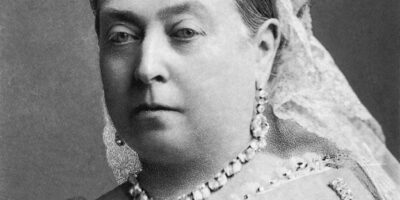
Muʿāwiyah takes to the sea detail.png Photo by Moustafa Farroukh – Wikimedia Commons
Top 10 Amazing Facts about Muawiyah I
He lived from 603 or 605 to April 680. He is also known as the founder and first caliph of the Umayyad Caliphate.
He ruled from 661 until his death in 680. He became caliph less than thirty years after the death of the Islamic prophet Muhammad and immediately after the four Rashidun rightly-guided caliphs.
Unlike his predecessors, who had been close, early companions of Muhammad, Mu’awiya was a relatively late follower of the Islamic prophet.
Mu’awiya and his father Abu Sufyan had opposed Muhammad, their distant Qurayshite kinsman, and later Mu’awiya’s brother-in-law until Muhammad captured Mecca in 630.
Afterward, Muawiya became one of Muhammad’s scribes. He was appointed by Caliph Abu Bakr 632–634, as a deputy commander in the conquest of Syria.
He moved up the ranks through Umar’s caliphate in 634–644, until becoming governor of Syria during the reign of his Umayyad kinsman, Caliph Uthman in 644–656.
He allied with the province’s powerful Banu Kalb tribe, developed the defenses of its coastal cities, and directed the war effort against the Byzantine Empire, including the first Muslim naval campaigns.
In response to Uthman’s assassination in 656, Muawiya took up the cause of avenging the caliph and opposed his successor, Ali.
1. His participation in the First Muslim Civil War

Umar Farrukh’s Muʿāwiyah takes to the sea.png Photo by Moustafa Farroukh – Wikimedia Commons
During the First Muslim Civil War, the two led their armies to a stalemate at the Battle of Siffin in 657. He prompted an abortive series of arbitration talks to settle the dispute.
Afterward, Muawiya I gained recognition as caliph by his Syrian supporters and his ally Amr ibn al-As, who conquered Egypt from Ali’s governor in 658.
Following the assassination of Ali in 661, Mu’awiya compelled Ali’s son and successor Hasan to abdicate and Mu’awiya’s suzerainty was acknowledged throughout the Caliphate.
2. Established Government Departments

Muawiyah I.png Photo by Viperwave – Wikimedia Commons
Domestically, Muawiya relied on loyalist Syrian Arab tribes and Syria’s Christian-dominated bureaucracy.
He is credited with establishing government departments responsible for the postal route, correspondence, and chancellery. He was the first caliph whose name appeared on coins, inscriptions, or documents of the nascent Islamic empire.
3. Extraordinary Troops
Externally, he engaged his troops in almost yearly land and sea raids against the Byzantines, including a failed siege of Constantinople.
In Iraq and the eastern provinces, he delegated authority to the powerful governors al-Mughira and Ziyad ibn Abi Sufyan, the latter of whom he controversially adopted as his brother.
4. He Conquered North Africa

Masjid Ijabah Imam Khairul Annas.JPG Photo by Imam Khairul Annas – Wikimedia Commons
Under Muawiya I direction, the Muslim conquest of Ifriqiya in central North Africa, was launched by the commander Uqba ibn Nafi in 670, while the conquests in Khurasan and Sijistan on the eastern frontier were resumed.
Although Muiwiya I confined the influence of his Umayyad clan to the governorship of Medina, he nominated his own son, Yazid I, as his successor.
It was an unprecedented move in Islamic politics and opposition to it by prominent Muslim leaders, including Ali’s son Husayn, and Abd Allah ibn al-Zubayr, persisted after Muawiya’s death, culminating with the outbreak of the Second Muslim Civil War.
5. It’s Amazing that he Lacked Justice
While there is considerable admiration for Muawiya I in contemporary sources, he has been criticized for lacking the justice and piety of the Rashidun and transforming the office of the caliphate into a kingship.
Besides these criticisms, Sunni Muslim tradition honors him as a companion of Muhammad and a scribe of Qur’anic revelation. In Shia Islam, Muawiya I is reviled for opposing Ali, accused of poisoning his son Hasan and held to have accepted Islam without conviction.
6. He Put Together Power Jurisdiction

Greek Muawiya inscription of Hammat Gader, 663 AD.png Photo by Author of inscription not credited – Wikimedia Commons
During the reign of Uthman, Mu’awiya allied with the Banu Kalb, the predominant tribe in the Syrian steppe extending from the oasis of Dumat al-Jandal in the south.
Additionally, he did the approaches to Palmyra and the chief component of the Quda’a confederation present throughout Syria.
Medina consistently courted the Kalb, which had remained mostly neutral during the Arab–Byzantine wars, particularly after the central government’s entreaties to the Byzantines’ principal Arab allies, the Christian Ghassanids, were rebuffed.
Before the advent of Islam in Syria, the Kalb and the Quda’a were long under the influence of Greco-Aramaic culture and the Monophysite church.
He had served Byzantium as subordinates of its Ghassanid client kings to guard the Syrian frontier against invasions by the Sasanian Persians and the latter’s Arab clients, the Lakhmids.
7. He Helped Accumulate Military Force
By the time the Muslims entered Syria, the Kalb and the Quda’a had accumulated significant military experience and were accustomed to hierarchical order and military obedience.
8. His Marriages in Syria
To harness their strength and thereby secure their foothold in Syria, Muiawiya consolidated ties to the Kalb’s ruling house, the clan of Bahdal ibn Unayf, by wedding the latter’s daughter Maysun in c. 650.
He also married Maysun’s paternal cousin, Na’ila bint Umara, for a short period.
9. His Reliance on Syria Cost him Troops Reduction
Muawiya I’s reliance on the native Syrian Arab tribes was compounded by the heavy toll inflicted on the Muslim troops in Syria by the plague of Amwas, which caused troop numbers to dwindle from 24,000 in 637 to 4,000 in 639.
Moreover, the focus of Arabian tribal migration was toward the Sasanian front in Iraq.
10. He Oversaw the Islam Liberal Recruitment
Muawiya I oversaw a liberal recruitment policy that resulted in considerable numbers of Christian tribesmen and frontier peasants filling the ranks of his regular and auxiliary forces.
Indeed, the Christian Tanukhids and the mixed Muslim–Christian Banu Tayy formed part of Mu’awiya’s army in northern Syria.
To help pay for his troops, Mu’awiya requested and was granted ownership by Uthman of the abundant, income-producing, Byzantine crown lands in Syria, which were previously designated by Umar as communal property for the Muslim army.
Although Syria’s rural, Aramaic-speaking Christian population remained largely intact, the Muslim conquest had caused a mass flight of Greek Christian urbanites from Damascus, Aleppo, Latakia, and Tripoli to Byzantine territory.
In addition, those who remained held pro-Byzantine sympathies. In contrast to the other conquered regions of the Caliphate, where new garrison cities were established to house Muslim troops and their administration, in Syria, the troops settled in existing cities.
The cities included Damascus, Homs, Jerusalem, Tiberias, Aleppo, and Qinnasrin.
Planning a trip to Paris ? Get ready !
These are Amazon’s best-selling travel products that you may need for coming to Paris.
Bookstore
- The best travel book : Rick Steves – Paris 2023 – Learn more here
- Fodor’s Paris 2024 – Learn more here
Travel Gear
- Venture Pal Lightweight Backpack – Learn more here
- Samsonite Winfield 2 28″ Luggage – Learn more here
- Swig Savvy’s Stainless Steel Insulated Water Bottle – Learn more here
Check Amazon’s best-seller list for the most popular travel accessories. We sometimes read this list just to find out what new travel products people are buying.










